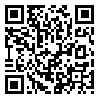Volume 3, Issue 4 (December 2021)
IEEPJ 2021, 3(4): 618-632 |
Back to browse issues page
Download citation:
BibTeX | RIS | EndNote | Medlars | ProCite | Reference Manager | RefWorks
Send citation to:



BibTeX | RIS | EndNote | Medlars | ProCite | Reference Manager | RefWorks
Send citation to:
NejadKazemfard S B, Makvandi B, Asgari P, Bakhtiarpour S. (2021). Efficiency Comparison of Behavioral Activation and Acceptance-Commitment Therapy on the Alexithymia in Patients with Diabetes Type 2. IEEPJ. 3(4), 618-632. doi:10.52547/ieepj.3.4.618
URL: http://ieepj.hormozgan.ac.ir/article-1-258-en.html
URL: http://ieepj.hormozgan.ac.ir/article-1-258-en.html
1- Department of Health Psychology, Khorramshahr-Persian Gulf International Branch, Islamic Azad University, Khorramshahr, Iran
2- Associate Professor, Department of Psychology, Ahvaz Branch, Islamic Azad University, Ahvaz, Iran ,bmakvandi@iauahvaz.ac.ir
3- Associate Professor, Department of Psychology, Ahvaz Branch, Islamic Azad University, Ahvaz, Iran
4- Assistant Professor, Department of Psychology, Ahvaz Branch, Islamic Azad University, Ahvaz, Iran
2- Associate Professor, Department of Psychology, Ahvaz Branch, Islamic Azad University, Ahvaz, Iran ,
3- Associate Professor, Department of Psychology, Ahvaz Branch, Islamic Azad University, Ahvaz, Iran
4- Assistant Professor, Department of Psychology, Ahvaz Branch, Islamic Azad University, Ahvaz, Iran
Abstract: (2382 Views)
The primary objective of the present study was to compare the effectiveness of two therapeutic approaches, namely Behavioral Activation (B.A) and Acceptance-Commitment Therapy, in addressing alexithymia among individuals with Type 2 diabetes. The research methodology employed was experimental, employing a pre-test-post-test design with an equivalent control group. The study encompassed individuals diagnosed with Type 2 diabetes residing in Abadan and Khorramshahr cities (Iran). A sample of 45 individuals with Type 2 diabetes was selected using a convenience sampling method. Subsequently, from this sample, 15 participants were randomly allocated to Experimental Group 1 (receiving Behavioral Activation therapy), another 15 to Experimental Group 2 (receiving Acceptance-Commitment therapy), and the remaining 15 to the Control Group. The research utilized the Toronto Alexithymia Scale Test as the assessment tool. Data analysis was conducted using multivariate and univariate analysis of covariance. The results of the data analysis revealed a significant distinction in the impact of Behavioral Activation (B.A) and Acceptance-Commitment therapy on the reduction of alexithymia in individuals with Type 2 diabetes. Notably, Acceptance-Commitment therapy exhibited a higher level of effectiveness in reducing alexithymia compared to Behavioral Activation (B.A) among individuals with Type 2 diabetes. Consequently, it can be concluded that Acceptance-Commitment therapy, in conjunction with its acceptance commitment techniques, is a more efficacious approach for reducing alexithymia in individuals diagnosed with Type 2 diabetes.
Type of Study: Original |
Subject:
Evolutionary Psychology
Received: 2020/10/9 | Accepted: 2020/12/23 | Published: 2021/12/1
Received: 2020/10/9 | Accepted: 2020/12/23 | Published: 2021/12/1
Send email to the article author
| Rights and permissions | |
 |
This work is licensed under a Creative Commons Attribution-NonCommercial 4.0 International License. |







